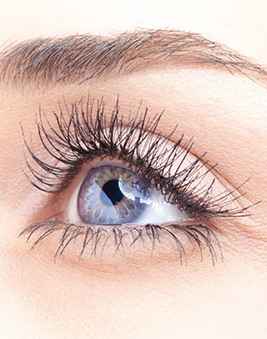
Rude Looks
Bright eyes
The eyes are the window to the soul, but what can you do when your eyes are dry or sore?
Health store advice
Charlotte Keaveney is a nutritional therapist at Honeybee in Claremorris, Co Mayo. “In store we mainly get customers in who suffer with dry, irritated eyes, contacts lens wearers and those concerned with preventing AMD (age related macular degeneration),” she says. “Firstly I recommend to start with diet – avoid processed foods, eat loads of colourful fruit and vegetables and include at least one portion of oily fish once a week such as mackerel, salmon, sardines and fresh tuna.”
Foods for eyes
According to Corin Sadler Dip ION, a nutritional therapist who works for Higher Nature, “A vital nutrient for eye health is vitamin A. It can be found in dairy products, fish oils and egg yolks. Carrots are also a rich source of beta-carotene which the body converts into vitamin A. Plenty of other bright coloured fruit and vegetables such as squash and apricots also contain valuable carotenoids.
“Antioxidants zeaxanthin and lutein are needed for the macula of the eye, so add plenty of leafy green vegetables to your plate such as spinach, kale and watercress, and up your intake of broccoli, peas, apricots, sweetcorn, mango and watermelon,” says Corin Sadler. “Tomatoes are also a great addition as they are rich in lycopene. Blueberries, blackcurrants and red grapes are fantastic sources of anthocyanins thought to enhance rhodopsin production.”
Eye make-up
“Unfortunately there are a myriad of toxic ingredients routinely added to eye make-up products including mercury in mascara, talc in eyeshadow and parabens,” says Michaela Maguire of Alchemist Earth in Limerick. “This can lead to dry eyes, sties, swelling and inflammation and can even thin out lashes and brows as well as dry out the skin.
“Mineral eyeshadows and eye liners are rich in natural pigments like their high street counterparts but without the harmful side- effects,” says Michaela. “All quality natural brands comprise natural plant extracts, vitamins and minerals and are made with nourishing ingredients such as rose water, almond oil, aloe, white tea extract, calendula and chamomile.”
Eye tips
- Visit your optician regularly, even if you don’t need glasses – once a year is ideal.
- Rest your eyes if they feel strained or sore. Placing slices of cucumber over them for 10 minutes can be refreshing.
- Wear sunglasses that filter out 100% UV light to prevent sun damage.
- If you get sore eyes, carry a small bottle of saline solution with you to help soothe them.
Dry eyes
If you get sore eyes, carry a small bottle of saline solution with you to help soothe them.
Eye supplements
“Unfortunately it is impossible to get all our optimum daily allowance through our food due to farming methods, time taken from farm to fork and processing methods, so we advise our customer to include some supplements,” says Charlotte Keaveney.
“I recommend eye drops that contain hyaluronic acid and are good for dry, irritated and tired eyes; omega 3 fi oils that contain two parts EPA and DHA which are essential to keeping the cell protected and hydrated; and a supplement in capsule form with all the nutrients including carotenoids zeaxanthin and lutein which have been found to be beneficial for maintaining eye health.”
Other good supplements for eyes include:
- Bilberry – contains antioxidant vitamins A and C that help to prevent damage to the eyes. Available as tablets, sometimes with lutein and zeaxanthin.
- Eye health supplements with zinc, selenium, and vitamins A, C, E and B2.
- Flaxseed oil – good if you have dry or itchy eyes due to an omega-3 called alpha-linolenic acid (ALA). Available as capsules and a liquid.
- Omega 3 fi oil – good for general eye health and clear eyesight. Available in capsules.
AMD
“Age related macular degeneration (AMD) is the slow deterioration of the cells in the macula, a tiny area in the centre of the retina at the back of the eye which affects central vision,” says Corin Sadler. “Astaxanthin appears to offer protection to the eyes against damaging free radicals, which is especially important in safeguarding against AMD. Zinc is found in high concentrations in the part of the retina affected by AMD, and retinal zinc levels have been shown to decrease with age. To boost your zinc levels eat nuts, seeds, seafood, meat and wholegrains.”
Cataracts
“Cataracts are one of the major causes of age-related visual impairment and are thought to be partially the result of excess free radicals,” says Corin Sadler. “They involve a deterioration of the transparent lens, which becomes more opaque over time. Selenium is concentrated in the lens and levels are much lower in the lenses of people with cataracts - to increase your selenium intake snack on brazil nuts and include mushrooms and fish in your diet.”
Click here to read other Rude Looks articles.
Click here to return to the Rude Health Magazine homepage.